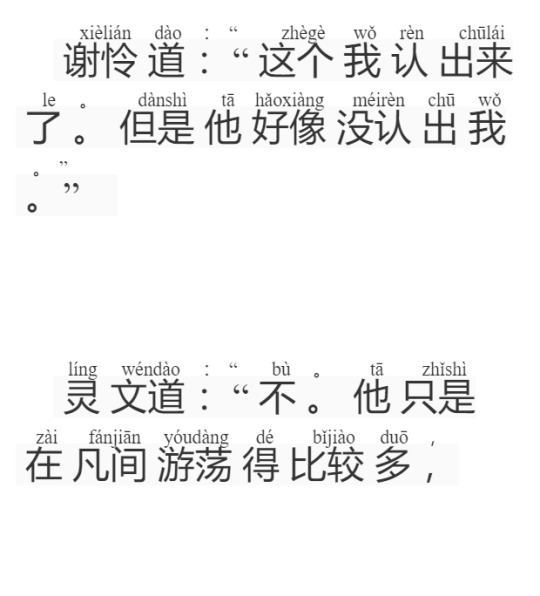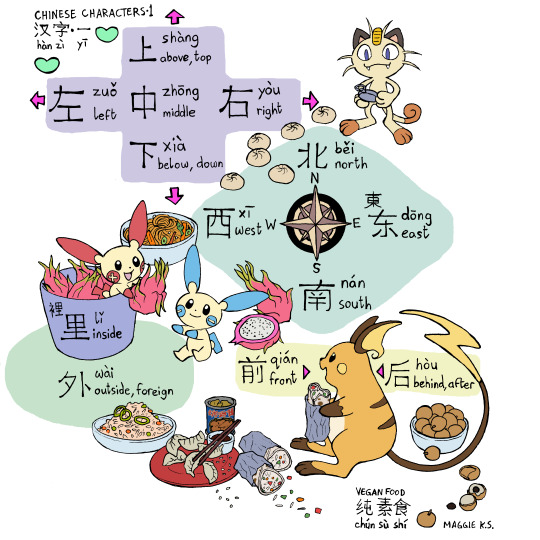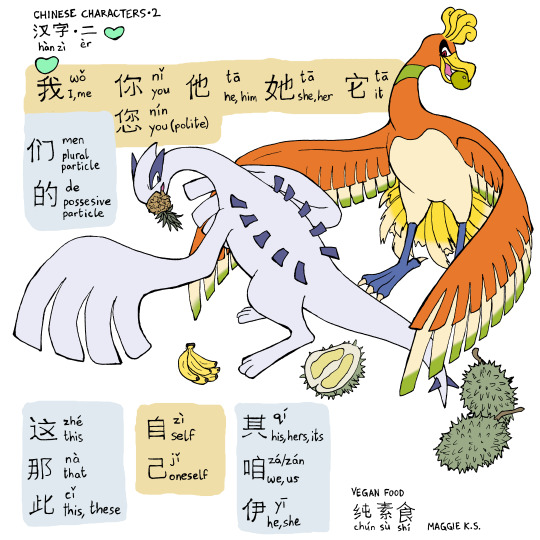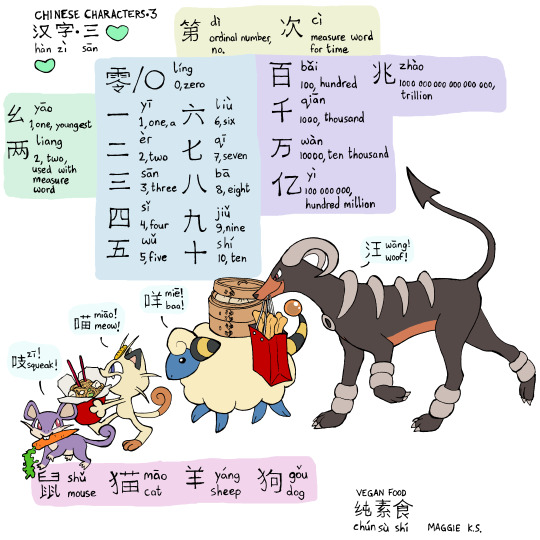Text
Spoken French - Quand le streamer Antoine Daniel était à Las Vegas
Full text, translation and some notes below.
Texte :
Eh putain d'ailleurs je- chais pas si j'vous avais déjà montré mais... Là-bas c'est que des voitures de débiles bien sûr, aux états-unis c'est des… c'est… "c'est qui qui a la plus grosse". Et une fois, quand on était à un… à un feu rouge, y'avait euh... un camion à côté d'nous. Et sur ce camion, messieurs dames, y'avait -chais pas si on va bien voir à l'écran- mais y'avait ça sur les roues. Le mec, il s'est cru dans Mad Max. Mais en vrai j'étais en mode "mais c'est pas possible que ce soit légal" ! C'est pas possible, même aux States, c'est pas légal d'avoir ça ! J'veux dire, c'est… on est où là !
Traduction :
Oh (putain) by the way I- I don't know if I already showed you but... There's only idiot's cars of course, in the United States, it's "who's got the biggest". And once, when we were at a... a red light, there was... a truck next to us. And on this truck, ladies and gentlemen, there was -I don't know if we'll see it on screen- but there was that on the wheels. The dude thought he was in Mad Max. But for real, I was like "it can't be legal" ! It can't be, even in the States, it can't be legal to own that ! What I'm saying is... What the fuck !
Obviously, it was hard to translate, and I opt to keep as close to a word-for-word translation as possible, as long as it made sense. Here's some spoken langage features&expression I want to highlight :
y'avait : "il y avait" but with an elision. It's so often said that way that even in informal text it will be written with a y.
C'est des "c'est qui qui a la plus grosse" : c'est is used so often that you can use it to introduce a plural (instead of ce sont). Here, it introduces a "kind of person", and the "kind of person" is refered to with a vulgar expression where the word dick is ommited. The joke is that the people are using the size of their car to assert dominance, in place of their dick sizes.
messieurs dames : before someone shows something, if they really want to make it feels as if they're showing you something spectacular, they can use this old-timey/show host greetings.
il s'est cru dans : "se croire" is often used to mock someone, it might be another of saying they're delusional, in a jokey way.
j'étais en mode : "être en mode", here mode refers to the way an engine or an operation might be specified to be or act, as in "emergency mode" or "edit mode". If you want to dismiss someone bothering you while you're not in the mood because you're working, you might say "non mais je suis en mode boulot là, je peux pas discuter, on peut faire ça plus tard ?"
c'est pas possible : often used on it's own, either jockingly as in the clip, in a serious tone if you've just learn a bad news, or angrily if the news is apalling. So look out for that one.
on est où là : or alternatively, in an angry tone, "nan mais on est où là !". Literally means "where are we right now", as in "what kind of place are we in right now for that type of things to happen. If you have a habit of letting the lights on in rooms you aren't in, someone might pester "on est où là, à Versailles ?"
0 notes
Text
Words with 相 (HSK3-5)
相信 (xiāngxìn) : to be convinced
照相机 (zhàoxiàngjī) : camera
互相 (hùxiāng) : mutual
相同 (xiāngtóng) : identical, same
相反 (xiāngfăn) : opposite, contrary
相关 (xiāngguān) : related, relevant
相当 (xiāngdāng) : equivalent to
相处 (xiāngchǔ) : to be in contact (with somebody)
相对 (xiāngduì) : relatively
1 note
·
View note
Text
Took me four hours but I was able to convert and format a Mandarin epub to include pinyin notation above the text:

Technical details below for anyone interested
I was trying to do this on my personal laptop, which is, unfortunately, Windows. I found two GitHub projects that looked promising: pinyin2epub and epub-with-pinyin and spent most of my time trying to get python to work. I wasn't able to get the second project to work, but I was eventually able to get some output with the pinyin2epub project.
The output was super messy though, with each word appearing on a different line. The script output the new ePub where all the tags that encapsulated every word and pinyin were on a new line, as well as having a ton of extra spacing.
I downloaded Calibre and edited the epub. With the help of regex search and replace I was able to adjust the formatting to what is shown in the picture above.
All in all, I'm fairly happy with it although it does fail to load correctly in any mobile ePub reader I've tried so far ( I have an Android). I think it's the <ruby> tags are either unsupported or cause a processing error entirely depending on the app.
Once I have motivation again I'd love to try to combine the original text epub with a translated epub. My idea here is that there would be a line of the original text above followed by a line of the translate text so on and so forth. I'd probably need to script something for this, maybe it could look for paragraph tags and alternate from two input files. I'd have to think about it a bit more though.
Unfortunately my Mandarin isn't yet strong enough to read the novels I'm interested in entirely in the original language, but I'd love to be able to quickly reference the original text to see what word or character they used, or how a phrase is composed
Feel free to ask if you want to try to do this and need any clarification. The crappy screenshot and lack of links because I'm on my phone and lazy.
114 notes
·
View notes
Text
German audio stories for beginners
[free audio imput from youtube]
➠ German Jam
Just 2 videos, but they are quite good!
➠ Natürlich German
Usual lessons and stuff, but also a lot of stuff about culture and fairy tales. Can’t recommend enough!
➠ André Klein
Lacks subtitles, so more for an A2-B2 ppl. But still can be useful!
➠ Easy German
The man, the myth, the legend. Can feel a lil’ bit repetative from time to time, but in the end - really useful!
Feel free to add yours in reblogs!
58 notes
·
View notes
Text
youtube
如果眼泪不是透明的
会随着情绪变色
那么你会不会史明白我的心呢
知道我在难过 知道我很心动
知道我的爱情已经藏匿很久
我用尽心力让你感受
感受到对你和别人不同的小举动
用力的爱 你静静凝视你
看你快乐是最浪漫的时刻
现在我的眼泪是大海的颜色
Vocabulary (HSK5-6+)
眼泪(yănlèi) : tears
透明(tòumíng) : transparent
情绪(qíngxù) : mood
心动(xīndòng) : heartbeat
藏匿(cángnì) : to cover up, to conceal
尽心(jìnxīn) : with all of one's heart
用力(yònglì) : to exert oneself physically
举动(jǔdòng) : act, move, activity
凝视(níngshì) : to gaze at
时刻(shíkè) : moment
5 notes
·
View notes
Text
50+ fundamental crime, suspense, & mystery Cdrama vocab words

I'm currently watching 《模仿犯》, so I was inspired to put together this list of essential vocab for 犯罪剧/悬疑剧/推理剧. I tend to gravitate towards dramas that fall into these genres.
I've sorted the words into categories. These were determined by vibes only. Definitions are adapted from MDBG, my loyal companion for nearly 10 years.
The Case
案子 ànzi - case / law case / legal case / judicial case
案件 ànjiàn - case / instance
办案 bàn'àn - to handle a case
破案 pò'àn - to solve a case
报案 bào'àn - to report a case to the authorities
命案 mìng'àn - homicide case / murder case
作案 zuò'àn - to commit a crime
现场 xiànchǎng - the scene (of a crime, accident etc) / (on) the spot / (at) the site
证据 zhèngjù - evidence / proof / testimony
真相 zhēnxiàng - the truth about sth / the actual facts
The Investigation
厘清 líqīng - to clarify (the facts) / clarification
线索 xiànsuǒ - trail / clues / thread (of a story)
细节 xìjié - details / particulars
痕迹 hénjì - vestige / mark / trace
追踪 zhuīzōng - to follow a trail / to trace / to pursue
追问 zhuīwèn - to question closely / to investigate in detail / to examine minutely / to get to the heart of the matter
排除 páichú - to eliminate / to remove / to exclude / to rule out
嫌疑 xiányí - suspicion / to have suspicions
怀疑 huáiyí - to doubt (sth) / to be skeptical of / to have one's doubts / to harbor suspicions / to suspect that
跟踪 gēnzōng - to follow sb's tracks / to tail / to shadow / tracking
不对劲 búduìjìn - fishy / wrong / not right
隐瞒 yǐnmán - to conceal / to hide (a taboo subject) / to cover up the truth
The Victim
被害者 bèihàizhě - victim (of a wounding or murder)
受害者 shòuhàizhě - casualty / victim / those injured and wounded
幸存者 xìngcúnzhě - survivor
失踪 shīzōng - to be missing / to disappear / unaccounted for
消失 xiāoshī - to disappear / to fade away
绑架 bǎngjià - to kidnap / to abduct / to hijack / a kidnapping abduction / staking
遗体 yítǐ - remains (of a dead person)
尸体 shītǐ - dead body / corpse / carcass
拯救 zhěngjiù - to save / to rescue
寻人启事 xúnrénqǐshì - missing persons notice
The Perpetrator
嫌疑犯 xiányífàn - a suspect
嫌疑人 xiányírén - a suspect
歹徒 dǎitú - evildoer / malefactor / gangster / hoodlum
凶手 xiōngshǒu - murderer / assassin
一伙儿的 yìhuǒrde - in on it together
开枪 kāiqiāng - to open fire / to shoot a gun
鬼鬼祟祟 guǐguǐsuìsuì - sneaky / secretive / furtive
可疑 kěyí - suspicious / dubious
认罪 rènzuì - to admit guilt / to plead guilty
自首 zìshǒu - to give oneself up / to surrender (to the authorities)
下落 xiàluò - whereabouts / to drop / to fall
动机 dòngjī - motive / motivation
犯罪 fànzuì - to commit a crime / crime / offense
The Police
报警 bàojǐng - to sound an alarm / to report sth to the police
警察 jǐngchá - police / police officer
警方 jǐngfāng - police
警官 jǐngguān - constable / police officer
刑警 xíngjǐng - criminal police (abbr. for 刑事警察)
被捕 bèibǔ - to be arrested / under arrest
包围 bāowéi - to surround / to encircle / to hem in
监控 jiānkòng - to monitor
检查 jiǎnchá - inspection / to examine / to inspect
调查 diàochá - investigation / inquiry / to investigate
排查 páichá - to inspect / to investigate one by one
质问 zhìwèn - to question / to ask questions / to inquire / to bring to account / to interrogate
前科 qiánkē - criminal record / previous convictions
Bonus: Here's a list of dramas I have seen/am watching in these categories:
《想见你》 Someday or One Day
《开端》 Reset
《消失的孩子》 The Disappearing Child
《她和她的她》 Shards of Her
《镇魂》 Guardian
《模仿犯》 Copycat Killer
《不良执念清除师》 Oh No! Here Comes Trouble
Now go forth and enjoy some more dramas! I'm a slow watcher, so I add new shows to my watch list faster than I can finish them.
679 notes
·
View notes
Text
Words with 安 (HSK 3-5)
安静 (ānjìng) : quiet, peaceful
安全 (ānquán) : safe, safety ; secure, security
安排 (ānpái) : arrangements, to arrange, to plan
安装 (ānzhuāng) : to install, to mount
平安 (píng'ān) : safe-and-sound
安慰 (ānwèi) : to confort, to console
但是如果别人都能看到我的日记的活,多不安全啊!
我都把当天计划要做事情写在笔记本上,提醒自己安排好时间。
将两只篮筐分别安装在体育馆两边看台的栏杆上。
12 notes
·
View notes
Text
Words with 定 (HSK3-5)
决定 (juédìng) : to decide
规定 (guīdìng) : regulations, to stipulate
肯定 (kěndìng) : assuredly, to affirm
固定 (gùdìng) : fixed, to fasten
确定 (quèdìng) : to ensure, to confirm
稳定 (wěndìng) : stable, to pacify
制定 (zhìdìng) : to formulate
否定 (fo3udìng) : to negate, to reject
生活的态度决定了我们幸福感的高低。
既然明天晚上公司会关灯停电,那么我们肯定不用加班了。
成语有固定的结构。
59 notes
·
View notes
Text
Words with 表 (HSK 4-5)
表示 (biăoshì) : to express, to state, to mean
表格 (biăogé) : form, table
表演 (biăoyăn) : play, show, performance / to perform, to act
表扬 (biăoyáng) : to praise
代表 (dàibiăo) : representative, delegate, on behalf of / to represent, to stand for
发表 (fābiăo) : to issue, to publish
表现 (biăoxiàn) : expression, display / to show off, to manifest
表明 (biăomíng) : to make clear, to state clearly
表情 (biăoqíng) : facial expression / to express one's feelings
表达 (biăodá) : to express, to convey
表面 (biăomiàn) : surface, face
但是不同的顺序却表示了不同的意思。
填写了报名表格。
我们用西瓜的大小代表钱的多少。
这是人类特征的真正表现。
4 notes
·
View notes
Text
Words with 信 (HSK3-5)
相信 (xiāngxìn) : to be convinced, to believe
信用卡 (xìnyòngkă) : credit card
信心 (xìnxīn) : confidence, faith in ..
自信 (zìxìn) : to have confidence in one-self, self confidence
短信 (duănxìn) : text message, SMS
信息 (xìnxī) : information, news, message
信封 (xìnfēng) : enveloppe
信号 (xìnhào) : signal
信任 (xìnrèn) : to trust, to have confidence in
我相信他们就会同意的。
面试的时候,一定对自己有信心。
现在只要打开网站,任何信息都可以在第一时候获得。
1 note
·
View note
Text
75 essential single-character verbs (单字动词)

When I started consuming more native Chinese content, I quickly discovered an area in which my knowledge was lacking: single-character verbs. In my experience, it’s very easy to focus on learning words consisting of two or more characters and overlook single-character words.
Driven by curiosity, I went through my Anki deck (and also wracked my brain) to generate a list of characters/words that I have learned over the past couple years (roughly). Then I selected 75 verbs that are fairly common and important to know. They skew towards intermediate and advanced vocabulary.
Definitions are from MDBG. For characters with additional meanings that I am not yet familiar with, I have bolded the meanings I want to share.
(1) 抢 qiǎng - to fight over / to rush / to scramble / to grab / to rob / to snatch
(2) 救 jiù - to save / to assist / to rescue
(3) 扶 fú - to support with the hand / to help sb up / to support oneself by holding onto something / to help
(4) 催 cuī - to urge / to press / to prompt / to rush sb / to hasten sth / to expedite
(5) 夹 jiā - to press from either side / to place in between / to sandwich / to carry sth under armpit / wedged between / between / to intersperse / to mix / to mingle / clip / folder / Taiwan pr. [jia2]
(6) 咬 yǎo - to bite / to nip
(7) 砸 zá - to smash / to pound / to fail / to muck up / to bungle
(8) 毁 huǐ - to destroy / to ruin / to defame / to slander
(9) 嚷 rǎng - to shout / to bellow / to make a big deal of sth / to make a fuss about sth
(10) 塞 sāi - to stop up / to squeeze in / to stuff / cork / stopper
(11) 贪 tān - to have a voracious desire for / to covet / greedy / corrupt
(12) 拆 chāi - to tear open / to tear down / to tear apart / to open
(13) 掏 tāo - to fish out (from pocket) / to scoop
(14) 跪 guì - to kneel
(15) 摘 zhāi - to take / to borrow / to pick (flowers, fruit etc) / to pluck / to select / to remove / to take off (glasses, hat etc)
(16) 拎 līn - to lift up / to carry in one’s hand / Taiwan pr. [ling1]
(17) 扛 káng - to carry on one’s shoulder / (fig.) to take on (a burden, duty etc)
(18) 拽 zhuài - to pull / to tug at (sth)
(19) 愣 lèng - to look distracted / to stare blankly / distracted / blank / (coll.) unexpectedly / rash / rashly
(20) 搂 lǒu - to hug / to embrace / to hold in one’s arms
(21) 垮 kuǎ - to collapse (lit. or fig.)
(22) 撑 chēng - to support / to prop up / to push or move with a pole / to maintain / to open or unfurl / to fill to bursting point / brace / stay / support
(23) 甩 shuǎi - to throw / to fling / to swing / to leave behind / to throw off / to dump (sb)
(24) 围 wéi - to encircle / to surround / all around / to wear by wrapping around (scarf, shawl)
(25) 愁 chóu - to worry about
Afficher davantage
837 notes
·
View notes



